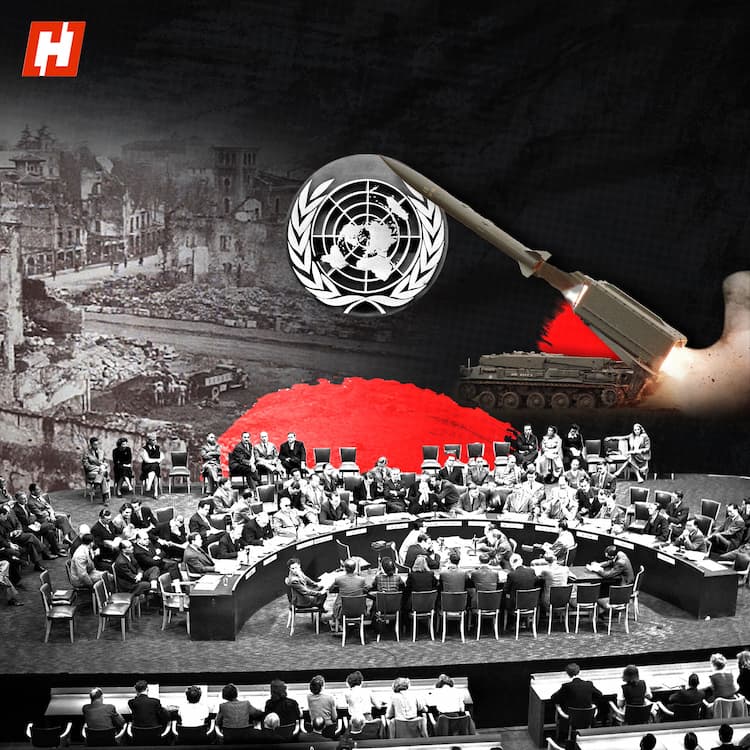Lebanese govt’s disarmament move riles Hezbollah, chief Naim Qassem issues warning

Hezbollah has locked horns with the Lebanese government over its bid to centralise control of arms. The group has claimed that the move could give a free rein to Israel to launch attacks on Lebanon.
On Tuesday, the government tasked its army with drafting a comprehensive plan for arms restriction and bringing all weapons under the country’s control. The army has been asked to present the plan by the end of the year.
It is believed that the move is aimed at stripping Hezbollah of its weapons and eliminating its fighting capabilities.
Hezbollah and Amal political leaders opposed the decision and walked out of the cabinet session held at the presidential palace in Baabda.
They accused Lebanon’s Prime Minister Nawaf Salam of acting on behalf of the US and Israel in crippling Lebanon's offensive capabilities.
The move comes as the government is under immense international pressure—especially from the US—to disarm Hezbollah following its 3-month war with Israel.
In July, the US envoy to Lebanon, Tom Barrack, met Lebanese President Joseph Aoun and expressed satisfaction regarding Lebanon’s plan to disarm Hezbollah.
Barrack had promised that America would help Lebanon emerge from its economic and political crisis.
Experts claim that the US ambassador was hinting at a potential US aid to the Lebanese Army if Hezbollah resists disarmament.
Hezbollah enjoys massive public support in Lebanon. Hence, criticisms are growing against the government's move to strip the group of its weapons.
There is a broad consensus among civilians on the effectiveness of Hezbollah’s weapons in deterring Israeli attacks and defending Lebanon’s sovereignty.
As the Lebanese cabinet was discussing the disarmament plan, there were massive protests in the capital Beirut city in support of Hezbollah.
Hours after the Lebanese government announced the plan to take control of Hezbollah’s weapons, the group’s chief, Naim Qassem, issued a warning.
Qassem, in a pre-recorded speech, said that the group has been adhering to the ceasefire agreement and will never surrender its weapons.
He claimed that disarming Hezbollah was a calculated move to weaken Lebanon and serve Israeli interests.
Hezbollah Secretary General, Naim Qassem, said, "Without discussion, there is no national security or a defense strategy. This is a mistake. We cannot accept that Lebanon commits to gradually giving up its strength while all the cards of power remain in the hands of the Israeli enemy."
The government’s move comes amid Israeli threats of renewing attacks on Lebanon if Hezbollah is not disarmed.
Qassem reiterated,"No one can deprive Lebanon of its force to protect its sovereignty, policy and capabilities. No one can prevent Lebanon from being dignified."
Israel and Hezbollah had agreed to end their hostility after a truce deal ended the 60-day war between them.
Israel was supposed to withdraw from Lebanese territories, while Hezbollah agreed to pull back its fighters north of the Litani River.
But both Israel and Hezbollah accused each other of violating the agreement.
Qassem asserted that the US is pressurising the Lebanese government to ban Hezbollah, allowing Israel to operate within Lebanon freely.
As the Lebanese government faces both international and domestic pressure, the question remains—can it actually disarm Hezbollah?
Notably, Hezbollah’s political leaders, along with members of other groups like the Amal movement, are part of the current Lebanese government.
Experts suggest that it would be extremely difficult for the government to reach a consensus on disarming Hezbollah.
Many political leaders from Hezbollah and the Amal movement are expected to oppose the move. Even if the government approves the plan, these politicians could resign in protest.
Experts claim that if the Lebanese government attempts to use force to seize weapons from the group, it would face immense resistance.
The analysts further said that the only plausible way for the Lebanese government to disarm Hezbollah would be to seek external support—a move that could significantly raise the risk of a civil war in the country.
With Hezbollah refusing to give up its arms, the Lebanese government now faces a critical test—whether it can gain international support without provoking Hezbollah or risk plunging the nation into a potential civil conflict.
Trending in Geopolitics

The only Indian ever executed by the Nazis — M. Madhavan

'New world order' that never was: 80 years since World War 2

Why advocates wear black and white

